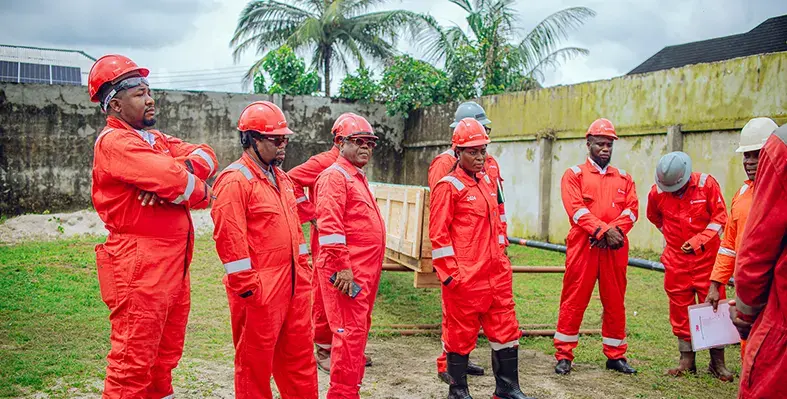Driven by its African identity, Nigerian independent Heirs Energies operates with an in-house development approach, partnering largely with indigenous contractors
Following its inspiring success story with OML 17, the company is ready to take on further challenging projects, now eyeing the Republic of Congo.
Heirs Energies CEO, Osa Ighiehon, reveals to Oil Review Africa what it takes to thrive as an African independent in today's energy industry and much more:
How would you define the Africapitalism approach?
Africapitalism is an economic philosophy pioneered by our Heirs Holdings Group chairman, Tony O Elumelu, CFR. It provides a powerful and practical framework for a more impactful role for the business sector in Africa's development. At its core, is the conviction that the private sector must be a primary catalyst for creating both economic prosperity and sustainable social wealth.
It’s about changing the old story where business in Africa was only about taking resource extraction. Now, it’s about making sure that every investment we make creates value, both commercially and socially, with the latter enabling and uplifting our communities whilst strengthening our economies.
For us at Heirs Energies, this is our north star. When we took over OML 17, it was our chance to prove this works. We set out to demonstrate that African capital, managed by African expertise, could not only revitalise a distressed asset, but do so in a way that delivers shared and enduring prosperity. Today, the results speak for themselves: we doubled production, restored security to the area, and, crucially, embedded community development into our core operations.
But the real success is that we did this while also funding scholarships, providing healthcare, and creating jobs for locals. For us, making a profit and having a positive social impact are two sides of the same coin. This is Africapitalism in action.
What should independents from Nigeria keep in mind while acquiring assets from IOCs?
Nigerian independents must understand that they are not merely purchasing an asset; they are inheriting a legacy and a material responsibility. The acquisition is the simplest step. The profound challenge lies in the transformation that need to follw for the journey to end well. International Oil Companies typically divest assets that no longer fit their global portfolio, often because they are capital-intensive, have operational challenges, burdened by years of underinvestment, and entangled in complex social and security challenges. The incoming independent must be prepared for this reality from day one.
Our journey with OML 17 is a case study in successfully tackling this reality to achieve a historic turnaround. When we took over, the asset was in severe distress, with terminal delivery of field production at a mere 3% shortly after. This wasn't an operational hiccup; it was a systemic failure, indicating near-total loss to theft and sabotage. We recognised that a purely technical or capital solution would fail. The real breakthrough came from rebuilding the entire ecosystem of trust. We engaged host communities not as a periphery activity, but as the core of our security and operational strategy, while forging strong, collaborative partnerships with government and security agencies. The definitive response by Government to oil and gas asset security that emanated, which has been sustained, is foundational to this spectacular outcome. This catalytic work enabled us to elevate reconciliation to over 99%; a transformation that turned a dying asset into a secure, reliable national contributor.
Critically, independents must resist the inertia and excuses that have plagued and caused the decline of the past two decades. Our advantage is not in the depth of our balance sheets, but in our delivery and growth focus, our solution-mindedness, and our genuine desire to develop our communities and countries. For instance, at Heirs Energies our engineers pioneered a rigless through-tubing intervention technique that restored shut-in wells at 65% lower cost and 32% faster than conventional methods. This innovation, born of a necessity to do more with less, unlocked significant value and added millions of cubic feet of gas to the domestic market.
Ultimately, the most vital lesson is this: our social license is as important as our legal license. The community is not a hurdle to overcome; they are the most crucial stakeholder we must engage with for sustainable operations. If they are not active partners in our success, we have no durable foundation to build upon. For the Nigerian independent, success is a blend of operational innovation, genuine partnership, strategic security and tenacity.
This is the first of a two-part interview








